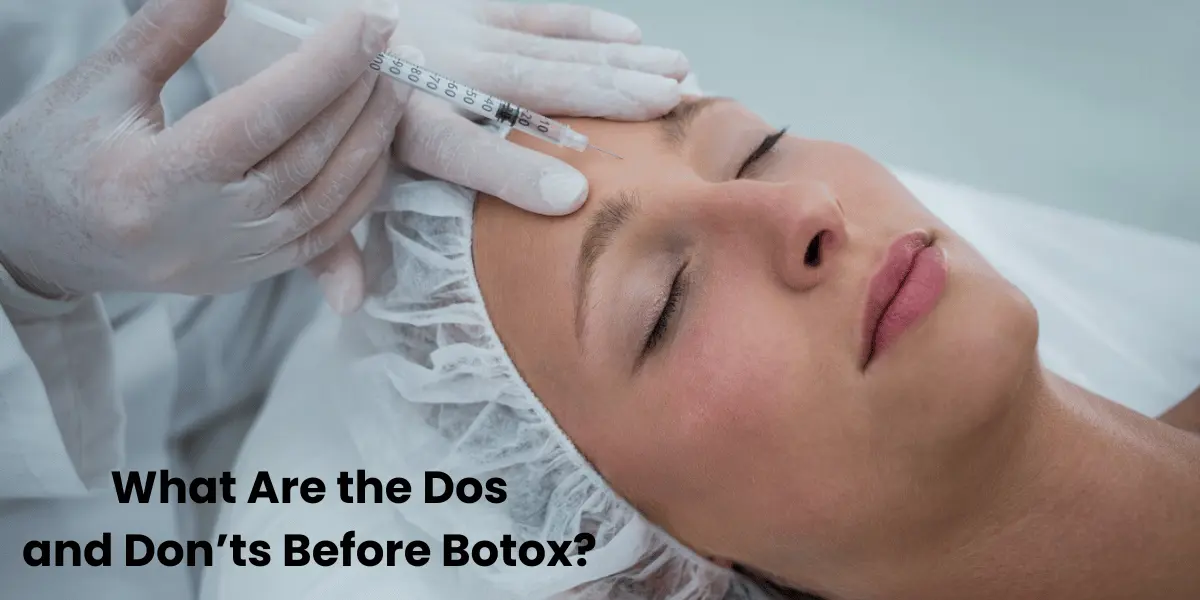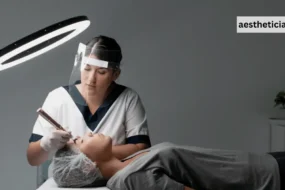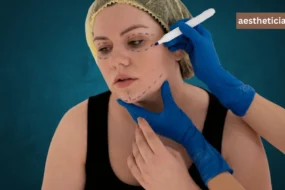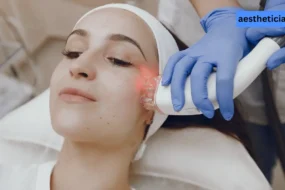
Getting Botox, a popular cosmetic procedure, is one of the quickest and easiest ways to reverse the signs of aging on your face, reducing lines, creases, and wrinkles. Whether you’re a first-timer or have regular appointments, making proper preparations and knowing the dos and don’ts is essential.
Avoid mistakes like having a drink afterward to prevent side effects such as swelling or bruising. You can maximize your results and enjoy a refreshed appearance with the proper aftercare.
What are The Dos and Don’ts Before Botox?
To ensure the best Botox results, avoid alcohol, blood thinners, and abrasive skincare before your appointment. Follow aftercare instructions to maximize the benefits.
How to Prepare for a Botox Appointment
Getting ready for a Botox appointment is not as complicated as it may seem, but you should still prepare by knowing what’s expected and planning your schedule. At the same time, you wait for the injection to ensure smooth preparation.
Washing Your Face
Before Botox, clean your face with warm water, a mild cleanser, or gentle soap to remove dirt, makeup, and excess oil. Steer clear of thick moisturizers and gently dry your face with a soft towel. The doctor will sanitize the treatment area using rubbing alcohol or an antiseptic wipe before the injection.
Avoid Drinking Wine in the Week Before Your Appointment
To minimize bruising, refrain from drinking red wine for at least a week before your Botox treatment. Preventing facial discoloration helps increase your chances of achieving smooth, flawless results. Refrain for seven days to ensure the best outcome.
Avoid Anti-inflammatory Medication
One important point under What Not to Do Before Botox is to avoid ingesting anti-inflammatory medication for at least seven days before your Botox appointment. These medications can increase the chances of bruising or discoloration following the treatment, potentially interfering with the ultimate results of the procedure.
Don’t Eat Garlic or Foods that Contain Garlic
Botox surgeons in Montreal often recommend avoiding garlic before treatment, as it can increase the risk of facial bruising. A natural herb like arnica is a preferred alternative, as it helps minimize bruising and promotes better recovery. Incorporating this simple change into your routine can ensure a smoother Botox experience with fewer side effects.
Don’t Take Medication That Can Thin Blood
To ensure a smooth Botox experience, it is crucial to avoid any medications that can thin the blood at least a week before your injection. Examples include supplements like fish oil, Ginseng, ginkgo biloba, Vitamin E, and over-the-counter drugs like Excedrin. Steering clear of these will help minimize the possibility of post-Botox bruising, allowing for a more seamless recovery.
What to Do After Botox Injection
Once Botox injections are administered, proper care of your face is essential to realize the full potential of the treatment. The right aftercare helps ensure good results and can minimize the risks of bruising. On the same day, you should relax and rest to allow your body to adjust. Make sure to maintain a normal heart rate and avoid touching the treated area. To aid the process, you can gently exercise your facial muscles for better results.
Wait 24 Hours After Botox Treatment Before Exercising
After receiving Botox injections, it’s crucial to avoid exercising for at least 24 hours to prevent any type of complications. Your doctor might suggest resting for a few days before you resume your workout routine. Physical activity increases blood flow throughout the body, which could cause the unintended spread of toxins to the treated areas. This may lead to reducing the effectiveness of Botox at the injection site and can also increase the risks of bruising. For those wondering, “Does Botox hurt?“ The whole procedure is almost painless, but proper aftercare is essential to avoid side effects.
Avoid Applying Makeup for 24 Hours
To protect the treatment area after Botox injections, avoid applying makeup for at least 24 hours. Rubbing your skin can disrupt the process and may introduce toxins. Let your face heal naturally for the best results.
Don’t Drink Alcohol
Your doctor will always tell you to avoid alcohol for a week before your injection to ensure better results. After the procedure, you’ll only need to wait 48 hours before you can consume alcohol again. Trust me, skipping those drinks for a few days makes the waiting worthwhile for smooth, flawless skin.
Don’t Touch Your Face
After receiving Botox, don’t touch your face for at least a day, as the injection needs time to settle. Some of the best doctors may suggest waiting three days before touching any treated areas, including other body parts. Even professional massages in these places should be avoided under such circumstances to protect the results.
Don’t Use Any Kind of Skin Treatment
After your Botox treatment, allow it to settle in the muscles by avoiding skin treatments like facials, massages, dermal fillers, or exfoliating scrubs for the first 24 hours. Using these immediately may reduce the effectiveness of the injections.
Avoid Sleeping in the Treatment Areas
Try to avoid applying pressure to the treated areas while sleeping to reduce the strain on the injection area. It allows the Botox ample time to settle in the muscles for optimal results.
Don’t Spend Too Much Time in the Sun
Avoid the sun after Botox, as heat can cause flushing and cause bruising. To be safe, stay away from direct sunlight, tanning beds, hot tubs, saunas, and showers for 24 to 48 hours. From personal experience, minimizing exposure helps maintain better results.
Potential Side Effects of Botox
- Minor, short-term side effects like pain, bruising, swelling, and redness at the injection site are common and usually related to the process rather than the botulinum toxin itself.
- Headaches may appear shortly after treatment but typically disappear within 24 to 48 hours.
- Rare effects like drooping eyelids can happen if the toxin spreads to nearby muscles, temporarily impairing movement.
- Slight muscle weakness near the area is possible but often diminishes over time.
- Choosing a qualified, experienced practitioner with a strong understanding of facial anatomy helps reduce risks and ensures the best outcome.
- Maintain open communication with your doctor to evaluate your suitability, especially if you have existing conditions.
Conclusion
In conclusion, preparing for Botox treatment involves following simple dos and don’ts to ensure the best results and minimize risks. By avoiding alcohol, blood thinners, and abrasive skincare products and taking care of your skin before and after the procedure, you can enhance your Botox experience.
Remember to schedule maintenance sessions, stay hydrated, and avoid intense exercise to make your results last longer. Following these guidelines and working with a trusted professional will help you achieve smoother, younger-looking skin with minimal side effects.
FAQ’s
Q: What should I avoid on the day of Botox?
Avoid alcohol and blood thinners for 24 hours after Botox injections to reduce the risk of bruising. Wait two days before using retinol in your skincare routine.
Q: What can ruin Botox?
Several things can ruin Botox, such as rubbing your face, excessive sun or heat exposure, and intense exercise. Additionally, using blood thinners, excessive alcohol consumption, washing your face with soap, or applying harsh topical products before your appointment may also affect the results.
Q: How to make Botox last longer?
To make Botox last longer, prepare properly, avoid exercise right after, and sit upright for four hours. Also, schedule regular maintenance sessions, take breaks from treatments, and avoid abrasive skincare products.
One blog post at a time, Dr.Jeffrey illuminates the route to glowing skin. As a result, her legacy as a skincare writer is growing, creating an enduring impression on the beauty and wellness industry.





